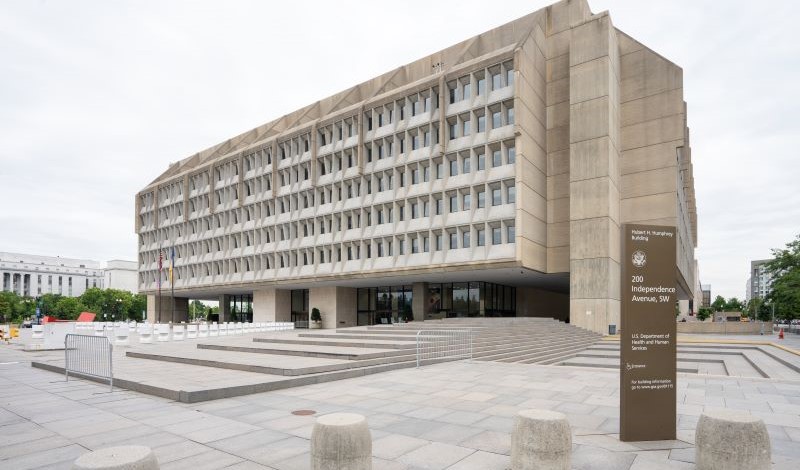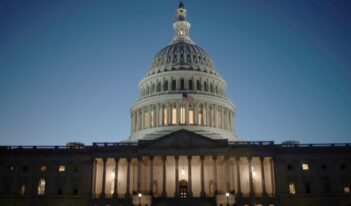
The Supreme Court preserves preventive services coverage but emboldens the HHS Secretary.
In a decision five years in the making, the U.S. Supreme Court upheld the constitutionality of the U.S. Preventive Services Task Force and preserved the requirement of the Patient Protection and Affordable Care Act (ACA) that most health insurers and employers cover, without cost sharing, Task Force-recommended preventive services. The Court’s decision in Kennedy v. Braidwood Management maintains the status quo but, like several other cases decided this last term, empowers—and emboldens—the Trump Administration by affirming that the Secretary of the U.S. Department of Health and Human Services (HHS) Robert F. Kennedy, Jr. can “exert significant control over the Task Force.”
For nearly 15 years, the ACA has required most private health plans to cover, without cost sharing, the following categories of services: preventive services with certain ratings from the Task Force, preventive services for women and children recommended by the Health Resources and Services Administration (HRSA), and immunizations recommended by the Centers for Disease Control and Prevention’s Advisory Committee on Immunization Practices (ACIP).
In 2020, individuals and employers challenged this ACA requirement, arguing that Task Force, HRSA, and ACIP members are “principal officers” rather than “inferior officers” under the Appointments Clause of the U.S. Constitution. Under the Appointments Clause, principal officers must be appointed by the President and confirmed by the U.S. Senate. Inferior officers, on the other hand, may be appointed by the President or a department head without Senate approval. The Task Force members are principal officers, the plaintiffs argued, because they can unilaterally dictate coverage requirements for private health plans. And because they are principal officers who were not appointed by the President and confirmed by the U.S. Senate, their appointments violated the Appointments Clause.
The district court and the U.S. Court of Appeals for the Fifth Circuit agreed that the Task Force members were principal officers who were improperly appointed. Further, the Secretary could not cure this constitutional defect by ratifying the Task Force’s recommendations because the Task Force is not subject to his control. Why not? Because the U.S. Congress, in the Task Force’s governing statute, established that the Task Force members and their recommendations “shall be independent and, to the extent practicable, not subject to political pressure.” And since the Task Force members were improperly appointed, the plaintiffs were not required to provide coverage of Task Force-recommended preventive services without cost sharing under the ACA.
In a 6-3 decision written by Justice Brett Kavanaugh, the Court reversed the Fifth Circuit’s decision and held that the Task Force members are inferior officers because they are subject to the supervision of the HHS Secretary. Rejecting the plaintiffs’ arguments that the Task Force is independent, the Court agreed with the government that the Task Force is subject to the Secretary’s control because the HHS Secretary can remove members at will and block the Task Force’s recommendations before they take effect. This “back-end” authority to remove Task Force members and block their recommendations is sufficient to confer the Secretary’s control even absent “front-end” authority to dictate specific recommendations.
The majority did not decide whether at-will removal authority alone is sufficient to make someone an inferior officer. Justice Brett Kavanaugh sidestepped this issue, pointing to three “multiple and mutually reinforcing” laws that allow the Secretary to review, block, and delay the Task Force’s recommendations from applying to private health plans. These same provisions—notably Congress’ 1984 ratification of an HHS reorganization plan and codification of the Task Force in 1999—vested the Secretary with the authority to appoint the Task Force members.
Justice Clarence Thomas, in a dissent joined by Justices Samuel Alito and Neil Gorsuch, disagreed that the broad, general laws cited by the majority are sufficiently clear to vest the Secretary with the authority to appoint the Task Force members. To the dissent, the Appointments Clause requires that Congress speak clearly when it gives a department head the authority to appoint inferior officers. But Congress did not do so here. At a minimum, the dissent would have remanded this issue to the lower courts for additional consideration.
The Court’s decision in Braidwood Management is a victory for the more than 150 million privately insured consumers and for public health. Because the Task Force does not violate the Appointments Clause, most private health plans must continue to cover high-value preventive care without cost sharing, a requirement that has contributed to increased cancer screening and vaccinations, facilitated earlier detection and treatment of chronic health conditions, and narrowed racial disparities in access to preventive services.
At the same time, we could soon see disruption to the Task Force’s recommendations from Secretary Kennedy. The Court affirmed that Secretary Kennedy can block future Task Force recommendations or encourage the Task Force to revisit, amend, or eliminate existing recommendations. Secretary Kennedy can also remove Task Force members who are not aligned with his “Make America Healthy Again” agenda—as he recently did with members of the ACIP, calling into question the future of immunization coverage. Similar changes could be ahead for the Task Force: Less than two weeks after the Court’s decision, Secretary Kennedy abruptly canceled a Task Force meeting scheduled for July 10 where members planned to discuss heart disease prevention.
Litigation could also continue over whether the Secretary must use notice-and-comment rulemaking procedures to ratify recommendations from HRSA and ACIP. In 2022, the district court held that then-HHS Secretary Becerra’s ratification of the HRSA and ACIP recommendations cured any potential defects under the Appointments Clause. In part of its decision that was not appealed to the Supreme Court, the Fifth Circuit remanded the issue of ratification back to the district court, although these proceedings have been on hold while the case was before the Court. Even if this litigation continues, the plaintiffs’ argument that the Secretary must ratify HRSA and ACIP recommendations may well fail. The Court made clear in Braidwood Management that the Secretary “need not review every decision” that the Task Force makes, a principle that should extend to HRSA and ACIP recommendations as well.
The outcome in Braidwood Management is perhaps unsurprising given the Court’s expansive view of executive branch power and modern jurisprudence on the Appointments Clause. In recent years, the Court has interpreted the Appointments Clause to constrain the independence of federal agencies—including the Consumer Financial Protection Bureau and the Federal Housing Finance Agency. And decisions from this past term, such as Trump v. Wilcox, cleared the way for President Donald J. Trump to remove members of even independent regulatory agencies. Here too, Justice Kavanaugh rejected an interpretation of federal law that would have established the Task Force as an independent body and instead affirmed that the Task Force is answerable to the HHS Secretary.
Going one step further, Justice Kavanaugh invoked Braidwood Management in his concurrence in Federal Communications Commission v. Consumer Research, which was issued on the same day. There, the Court declined to reinvigorate the nondelegation doctrine, which allows Congress to grant broad authority to executive branch agencies so long as Congress sufficiently guides agency discretion. Noting that the Federal Communications Commission—like the Task Force—is not an independent agency, Justice Kavanaugh expressed newfound caution that applying the nondelegation doctrine to executive branch entities may create “undue judicial interference with the operations of the Presidency.” Consumer Research should help close the door on the Braidwood Management plaintiffs’ argument that the ACA’s preventive services requirement violates the nondelegation doctrine, which had been soundly rejected by the lower courts and was not before the Supreme Court.
This essay is part of a series, titled “The Supreme Court’s 2024-2025 Regulatory Term.”





